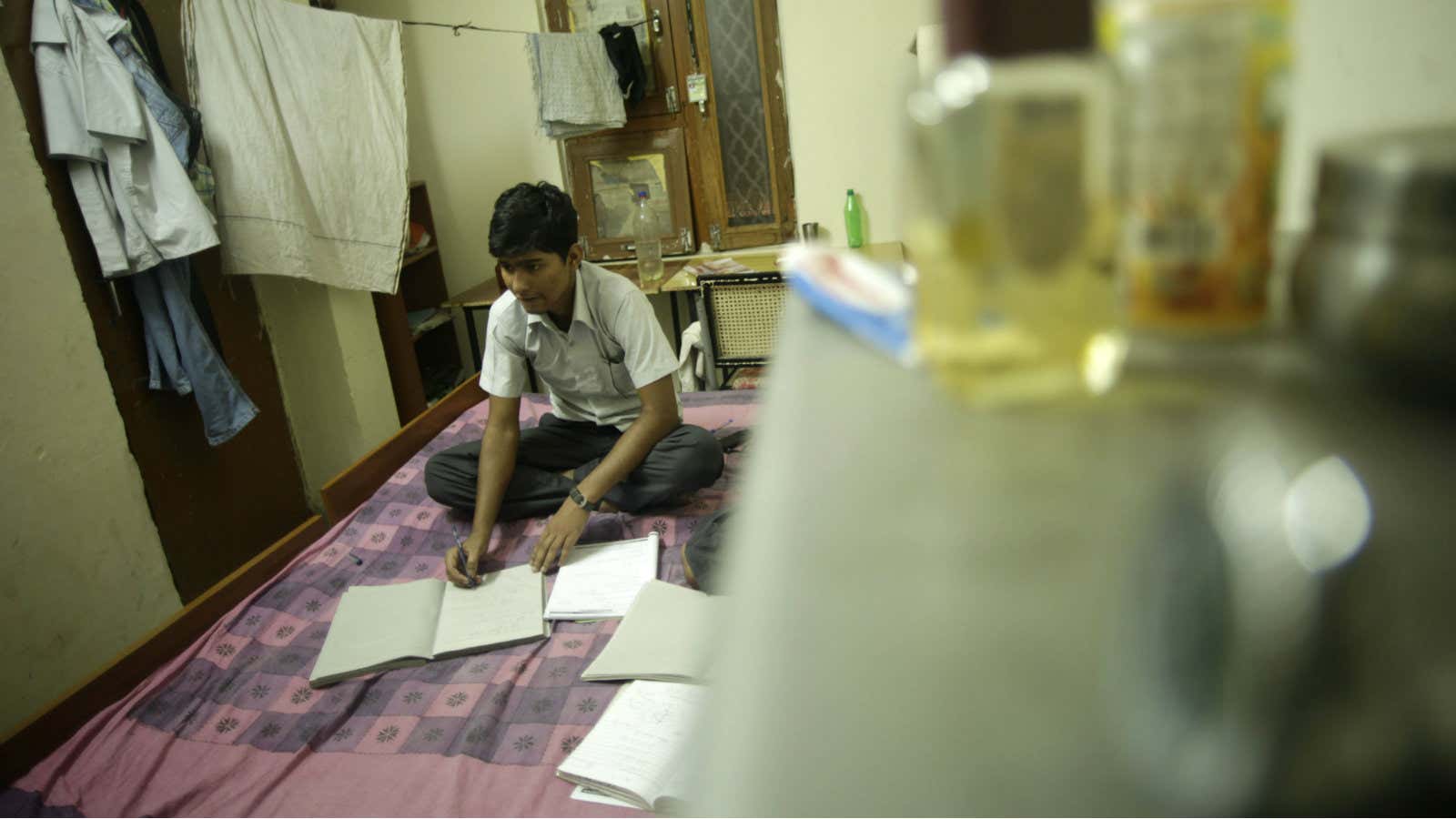One of India’s best engineering colleges is working to prevent student suicides by pulling them out of loneliness and depression. The Indian Institute of Technology (IIT), Kharagpur, wants students to interact more with each other instead of living cocooned lives on campus. And to nudge them towards this, hostel authorities simply switch off the power in the evenings.
Every evening, an hour of blackout is imposed in the hostels so that the occupants come out of their rooms, leaving behind their laptops and the internet, at least briefly, and bond with their peers.
“Once the lights are turned off, all the students are expected to come out of their room. Normally those students who spend maximum time in their room and do not interact with others, they are also forced to come out of their room and mingle with others,” Manish Bhattacharya, dean, students affairs at IIT Kharagpur, told Quartz in an email.
This is expected to create a healthy social life on campus to potentially tackle depression, which intensifies with seclusion. Such depression, along with academic pressure, is said to be a major cause for instances of student suicide in India.
In 2015 alone (the latest year for which official data is available), 8,934 students committed suicide in the country, according to the National Crime Records Bureau (NCRB). About 2.8% of these incidents were at the graduate education level, which includes IIT students.
Every year, hundreds of thousands of students compete for a handful of seats at these premier engineering colleges. This intense competition continues even after securing seats, given that the IITs attract some of the most lucrative job offers in India. In addition, many students find it difficult to get used to life in a new town and handle responsibilities by themselves without support from family or friends. While most students fight the problems, a few wilt under pressure and commit suicide. At IIT-Kharagpur, two students committed suicide earlier this year. Other top institutes, too, have lost students to depression and stress.
Like the blackout project, IITs across the country have taken measures to tackle this depression, setting up creative centres for students to dance, sing, and play musical instruments or organising tree hugging sessions. The IITs also have counselling centres.
At Kharagpur, the students appear to be enjoying the “lights off” initiative, and more such activities are in the works.
The Rekhi Centre of Excellence for the Science of Happiness, the institute’s initiative to promote students’ well being, is helping out, too. It offers various courses, hosts regular workshops, and organises talks by researchers in the field.
“We hope that the courses will give them (students) deep insights into the theory and practice of happiness,” Priyadarshi Patnaik, faculty coordinator for the Rekhi Centre, said.
